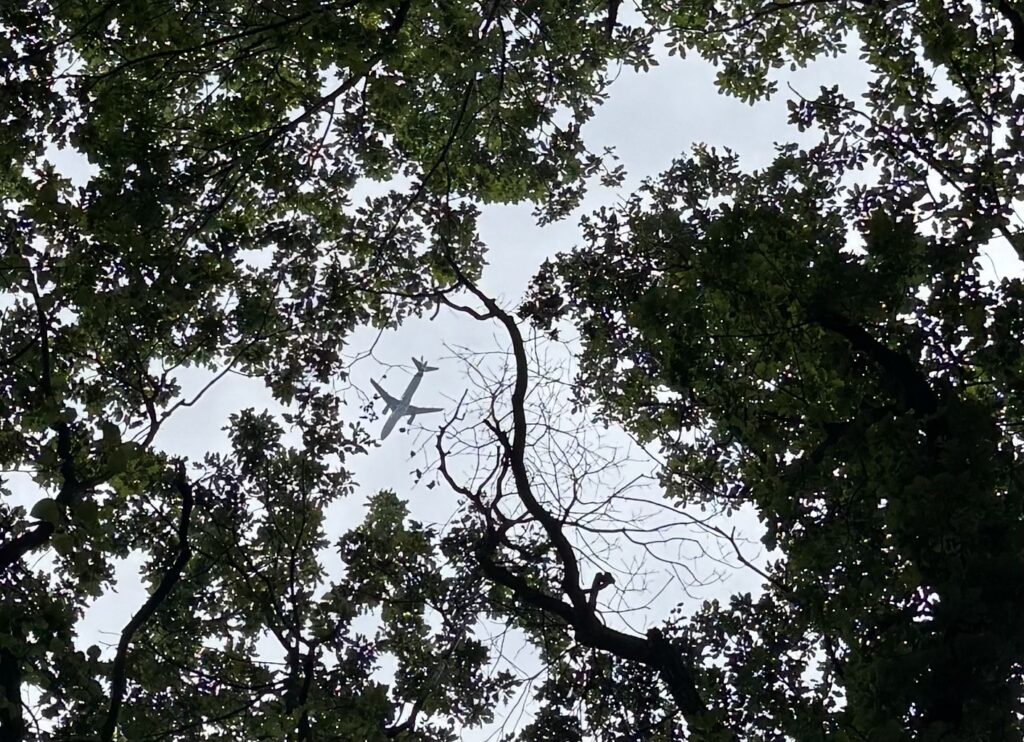Every year, I return to the Island. Not just by pressing play on Season 1, Episode 1, but by physically going back to Oʻahu, walking through the banyan trees where the smoke monster once roared, standing on the beach where Oceanic 815 split in two, and climbing the ridges where Jack chased shadows and purpose. For years, this annual ritual, both onscreen and in real life, was my quiet pilgrimage. And even now, when life no longer takes me to Hawaiʻi so easily, I still return to Lost. Because something in that story still speaks to me. Something unfinished, unresolved, beautifully broken. And every rewatch teaches me something new about faith, grief, hope, and the flawed but stubborn will to keep going.
The Island Was Real to Me
There is something strange about standing in a place where fiction and memory overlap. On Oʻahu, the line between Lost and life blurs. One minute, you are just another tourist on a beach, Waimea, Mokuleia, Police Beach. The next, you are back in the fuselage, watching Jack run through fire. You are at Kualoa Ranch, where Hurley built the golf course, or where the hatch once stood hidden beneath the brush. I used to rent a car and chase ghosts, mine and theirs, through rainforests and valleys, past banyan trees and military bases, driven by something more than fandom. I was looking for a story I wasn’t done with. Maybe a version of myself I’d left behind.
Those trips were never just vacations. They were re-groundings. Reminders. Rituals. I would sit on the Survivors’ Beach where the castaways built their lives, close my eyes, and feel the tide tugging at the shore like time pulling at memory. Being there made me remember that Lost was not just a show I watched. It was a companion. A guide. A map drawn in mystery and myth, but rooted in something very real: the need to heal, the need to belong, the need to choose who we become when everything else falls apart.
Echoes in the Trees
I never expected the Island to feel so quiet. For a show full of chaos, crashes, time jumps, Others lurking in the trees, its real-world counterpart was hauntingly still. The wind rustling the palms above the banyan grove felt almost reverent, like the Island remembered. I remember pausing there once, alone, near the spot where the cockpit scenes were filmed. The forest was green and dense and alive, but I felt no fear, just the odd comfort of being somewhere that meant something to me, even if the meaning had shifted over time.
I think that is what kept drawing me back. Not just the magic of the place, but the space it gave me. On the Island, I could slow down. I could process things I had not made time for. The show taught me early on that pain does not vanish, it evolves. That survival is not the end of the story. That we carry our griefs with us, like Sawyer’s letter or Jack’s tattoos or Sun’s silent strength. And every time I visited, I carried my own losses, changes, questions, and laid them down on the shore for a while.
Over the years, I began to measure time by those visits. They marked endings, new beginnings, seasons of doubt, flashes of clarity. The Island bore witness. It changed, too. Some locations closed off like the YMCA camp where the Others’ village was filmed, others reclaimed by jungle. But even as life moved forward, I always knew where I could return to feel grounded. To remember. To be still.
Today, I am far from Hawaiʻi. I did not expect Lost to visit me. But on my forest hike today, I looked up and saw a plane flying low over the treetops, its shadow skimming the canopy, light filtering through the branches. For a split second, it felt exactly like the final scene of Lost, when the Ajira plane lifts off and leaves the Island behind. I took a picture, not to capture the plane, but to hold onto the feeling. That maybe the Island is not a place we leave behind. Maybe it’s a place we carry. A story that keeps living inside us, as long as we let it.
How I First Got Lost
I did not watch Lost when it first aired on ABC. Somehow, I missed the cultural tidal wave, the forums, the theories, the frenzied Thursday morning debates. For me, the Island arrived quietly. Years after the final credits had rolled, it showed up on Netflix one unassuming evening. I had no idea what I was getting into. I just needed something to watch, and clicked play.
And then I could not stop.
What began as background noise quickly became a gravitational pull. The show consumed me. I watched episode after episode, late into the night, blurry-eyed and stunned. I fell into that jungle, just like the survivors of Oceanic 815. Only I was not watching for the mystery. I was watching for the people. Jack, Kate, Sawyer, Hurley, Sayid, Jin, Sun, Locke… They were flawed and stubborn and aching in ways that felt familiar. I did not care if the smoke monster made sense. I just wanted to know who these people would become, what they would choose, what they would heal.
Looking back, I think it mattered that I watched it all at once, without the long gaps between seasons. The story washed over me like a wave. It was not broken up by years of speculation or outrage over unanswered questions. It unfolded like mythology, slow and strange and devastating. I was not watching a mystery box. I was witnessing a pilgrimage.
Growing Older with Lost
The strange thing is, every time I watch Lost, I feel like I’m watching a different show. The story stays the same, but I don’t. And that’s the gift, and the curse of truly layered storytelling. You return for answers, but leave with better questions.
The first time through, I was obsessed with the plot. I took mental notes. Who was in the tail section? What was the hatch? Who were the Others? I wanted to solve the puzzle, to be the kind of person who understood Lost. But as the years passed, something shifted. I stopped trying to solve the Island and started listening to it.
Now, I find myself lingering on different moments. Hurley sitting quietly with Libby. Desmond calling Penny from the freighter. Juliet weeping as she presses the detonator. Jack finally learning how to let go. These scenes used to feel like detours from the central mystery, but now I see them as the core. The emotional truth of the show is louder to me than any mythos. It is not just about destiny or Dharma or the cork in the cave. It is about the messy, terrifying, transcendent act of being human.
And still, even now, Lost manages to ask me questions I have not yet answered. Do I live more like Jack or Locke? What would I need to be whole? What would I sacrifice to protect the people I love? What parts of myself would I find if I were stripped of everything else? I do not know. But I keep watching. And the Island keeps asking.
The Place We Meet Again
There is something hauntingly beautiful about the way Lost ends, not with answers, but with a reunion. In a sideways world that is not quite purgatory, not quite heaven, the characters find each other again. Slowly, one by one, they remember. And when they do, they touch each other’s faces like waking from a long dream. They smile through tears. They say, “I missed you.” And then they move on, together.
I think about that often. More than I ever expected to. The idea that at the end of it all, the people who mattered most will find each other again. That there is a waiting room for the soul, and you do not enter the next chapter alone. That even after death, we still choose each other.
Sometimes I wish we all had that. A space outside of time where we get to remember who we were, and who we loved. Where the mess of life melts away, and what is left is the connection that endured. Not every goodbye in life comes with peace. But Lost gave me the hope that maybe, one day, it could.
When Christian tells Jack, “The most important part of your life was the time that you spent with these people,” I feel something crack open in me every time. Because what if that is true? What if we are not defined by our careers or failures or the stories we tell ourselves, but by the people we chose to walk beside? That ending was never about death. It was about love. About choosing to meet each other again.
We Have to Go Back
I do not know why Lost still holds me the way it does. Maybe it is the mystery, or the music, or the way it dares to be both grand and intimate, spiritual and grounded. Maybe it is because it arrived in my life when I needed it, and never let go. Or maybe it is because I never really left the Island. Not fully. I carry it with me, tucked between memory and meaning, between who I was and who I am still trying to become.
Today, when I looked up and saw that plane skimming the treetops, something stirred. It felt like a message, or a reminder. The world is still chaotic. Life still doesn’t make sense most days. But somewhere, maybe, the people I have loved, and the people I have yet to meet, are waiting. Just like Jack and Kate and Sawyer and Sun. Waiting to remember. Waiting to choose love again.
And until then, I will keep watching. I will keep coming back. Because Lost still knows something I am trying to learn: that no one does it alone. That we all crash, one way or another. But if we are lucky, we wake up somewhere soft, under a sky we do not yet recognize, surrounded by people who will walk with us until we remember who we are.

